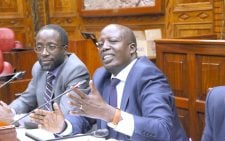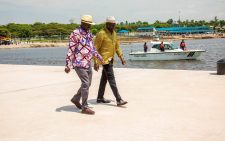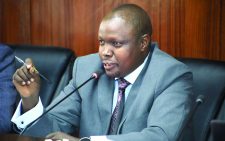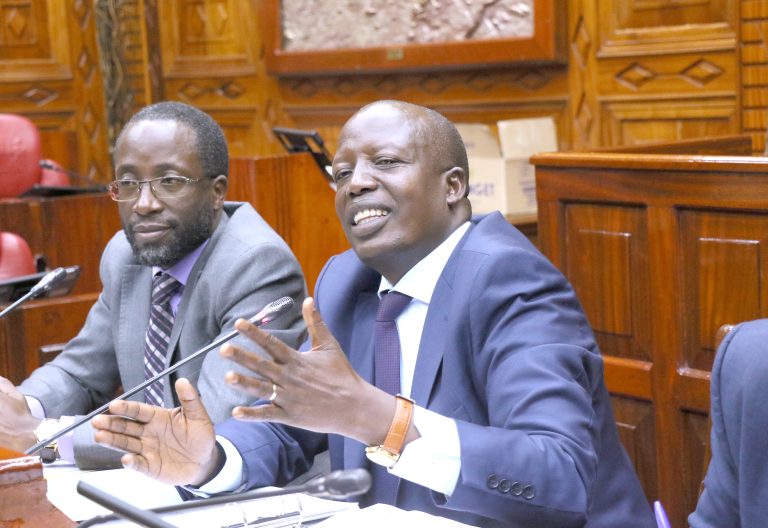Former Kemri director Davy Koech freed after Ruto’s parole
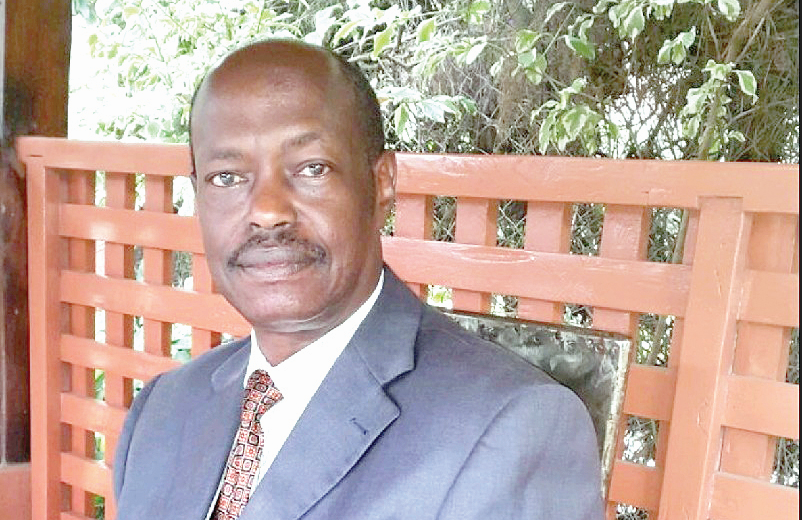
Eminent scholar and researcher Prof. Davy Koech who for a long time previously served as the Kenya Medical Research Institute (Kemri) director was yesterday among persons who gained freedom from prison after being granted parole by President William Ruto.
Koech walked to freedom after Ruto pardoned him on July 21 together with 36 other prisoners who serving long jail terms for serious crimes, including murder and sexual offences.
A Kenya Gazette Notice signed by Attorney General Justin Muturi also stated that the president pardoned 5,861 convicts serving minor sentences in various prisons across the country.
In his latest directive, Ruto also commuted the death sentence for all capital offenders to life imprisonment.
Muturi revealed that the President pardoned the former Kemri boss Koech and several other convicts after receiving their petitions and a recommendation of the Advisory Committee on the Power of Mercy.
The former Kemri boss, who is likely to be the first corruption convict to be pardoned by the government, had spent close to two years in jail having been sentenced on September 21, 2021.
He was condemned to six years or pay a fine of Sh19.6 million by Milimani Anti-Corruption Magistrate Victor Wakumile after being found guilty of three offences of corruptly acquiring a total of Sh19 million from the research institution.
Wakumile found Koech in the first count to have fraudulently acquired Kemri’s property for Sh800,000 on August 17, 2006 in Nairobi.
The second and third charges read that on December 12, 2006, he illegally obtained Sh6 million and another Sh12.5 million from the research institution.
Vector control funds
He faced additional charges that he used his position to corruptly transfer funds from the Vector Biological and Control Research (VBCR) account to himself.
He was further accused of transferring Sh19.3 million from the institution’s bank accounts to his personal accounts. The funds had been designated for the Kisumu Centre for Disease Control.
Aggrieved by the conviction and sentence, Koech lodged an appeal in the High Court to quash the decision issued by the magistrate. He also sought bail pending appeal but Justice Esther Maina declined and ordered his appeal to be heard expeditiously while in jail.
Koech’s pardon comes even as his appeal against the conviction and sentence is pending determination by the High Court Anti-Corruption Division.
Muturi said Ruto’s decision to pardon Koech and other prisoners was in line with Article 133 of the 2010 Constitution, which also gives the Head of State powers to grant a free or conditional pardon to a person convicted of an offence.
Those pardoned alongside the former Kemri boss are three murder convicts Burfa Jara Dokota, Ismael Kalamsho Kabiru and Mohammed Alango Durbu. The three had been serving 10 year sentences for killing Adow Dakane Dhidow on October 28, 2007 at Bagale Training Centre within Tana River county.
Also paroled by the President is Samuel Ndugi Ngugi who had been jailed for 40 years for defiling a six year old child and Ann Wangari Mungai who had been serving a 40-year-jail term for murder. Wangari had been sentenced in 2004 for killing her stepson, the 16-year-old boy who was the youngest of the children of her husband’s former wife.
At the same time, President Ruto commuted all death sentences to life imprisonment on the recommendation of the committee.
“In exercise of the powers conferred by Article 133 of the Constitution of Kenya and section 23 (1) of the Power of Mercy Act, 2011, the President and Commander-in-Chief of the Defence Forces of the Republic of Kenya, upon the recommendation of the Advisory Committee on the Power of Mercy, commuted the death sentence imposed on every capital offender as at the November 21, 2022, to a life sentence,” reads the notice in part.
The President’s directive to reduce death sentence for capital offences comes two weeks after the Court of Appeal sitting in Malindi declared life in prison unconstitutional.
In the landmark decision rendered by Justices Pauline Nyamweya, Jessie Lesiit and George Odunga stated that it is unfair to outlaw mandatory death sentences, only to order a person to remain behind bars until they die. The three judges held the purpose of jailing a person is to either deter, rehabilitate, denounce, or retribute for the offence committed.
Natural life of prisoner
However, they asserted that a life sentence should not mean the natural life of a prisoner. Their decision sprang from an appeal filed by Julius Kitsao jailed for life imprisonment for defiling a four-year-old minor.
The President further demonstrated an act of clemency by granting pardons to 5,861 convicts who were serving minor sentences in different prisons across the country.
This group includes 2,944 individuals who had been sentenced to jail terms of six months or less. The President’s decision to pardon these individuals was based on their exhibited good conduct during their time of sentencing as recommended by the heads of prison varsities.
“The President, upon the recommendation of the Advisory Committee on the Power of Mercy, remitted the unexpired portion of the respective sentences of— two thousand, nine hundred and forty-four petty or minor offenders of good conduct convicted to sentences of six months and two thousand, one hundred and seventeen long term offenders who have sentence balances of six months and below to serve,” the Gazette notice added.
According to a report by the Death Penalty Project, over 500 prisoners are currently on death row in Kenya.
The country last carried out the death sentence in 1987, when Hezekiah Ochuka was hanged after being charged with treason for the 1982 coup attempt. In August 2009, the late President Mwai Kibaki commuted 4,000 death sentences to life imprisonment.
In October 2016, then President Uhuru Kenyatta emptied the death row of its 2,747 inhabitants. In 2017, the Supreme Court, while ruling on a lawsuit brought by Francis Muruatetu, outlawed the death sentence by declaring it unconstitutional.
The top court held that the punishment contradicts the 2010 Constitution.
